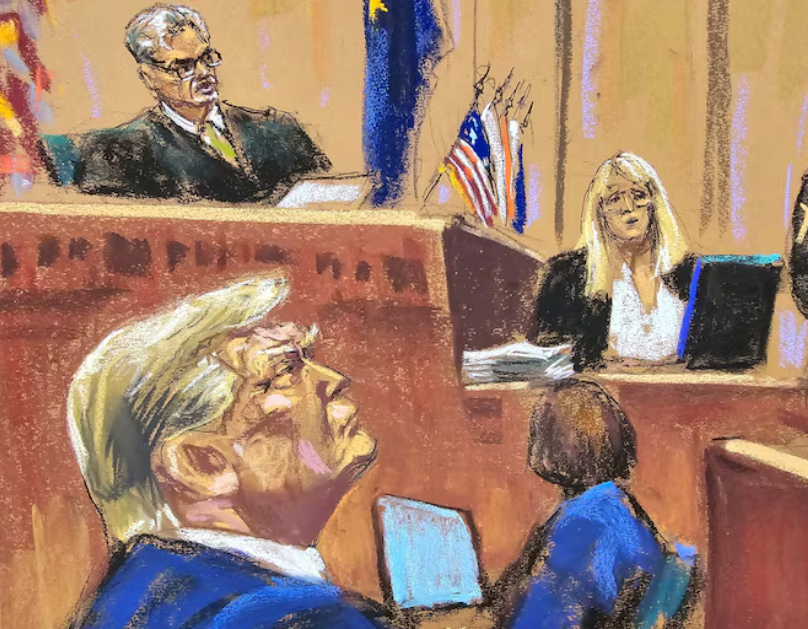In a historic moment, prosecutors who secured Donald Trump’s criminal conviction on felony charges in May did not explicitly oppose his request to delay sentencing until after the Nov. 5 election.
In a letter to Justice Juan Merchan, prosecutors with Manhattan District Attorney Alvin Bragg’s office acknowledged Trump’s right to appeal a forthcoming ruling on whether he was immune from prosecution.
They deferred to Merchan on the decision to delay sentencing, stating, “We defer to the Court on whether an adjournment is warranted,” and added, “The People are prepared to appear for sentencing on any future date the Court sets.”
Trump’s defense lawyers had requested a delay for the scheduled Sept. 18 sentencing, citing “naked election-interference objectives.” They argued there was insufficient time before sentencing to appeal Merchan’s ruling on Trump’s request to overturn the conviction, based on the U.S. Supreme Court’s landmark ruling on presidential immunity. The judge is set to rule on that motion on Sept. 16.
The Supreme Court’s 6-3 decision in a separate criminal case involving Trump found that presidents cannot be criminally prosecuted for their official acts, and that evidence of presidents’ official actions cannot be used to help prove criminal cases involving unofficial actions.
Merchan had already delayed Trump’s sentencing, initially scheduled for July 11, to allow Trump to argue that the decision meant the hush money verdict should be set aside. Prosecutors maintain that their case involved Trump’s personal conduct, not official acts.
In their letter to Merchan, prosecutors acknowledged the possibility that Trump might immediately appeal the judge’s decision on immunity, potentially causing a delay in the Sept. 18 sentencing after “significant public safety and logistical steps” had already been taken to prepare for Trump’s court appearance.
Trump campaign spokesperson Steven Cheung released a statement saying, “There should be no sentencing in this Election Interference Witch Hunt.” Trump, convicted on May 30 of falsifying business records to cover up his former lawyer’s $130,000 payment to adult film actress Stormy Daniels for her silence before the 2016 election, has denied the encounter and vowed to appeal the verdict once sentenced.
If Trump wins the White House, he could potentially order the Department of Justice to drop federal election interference charges against him, although he would lack the authority to end the New York state case or an election interference case in Georgia.

